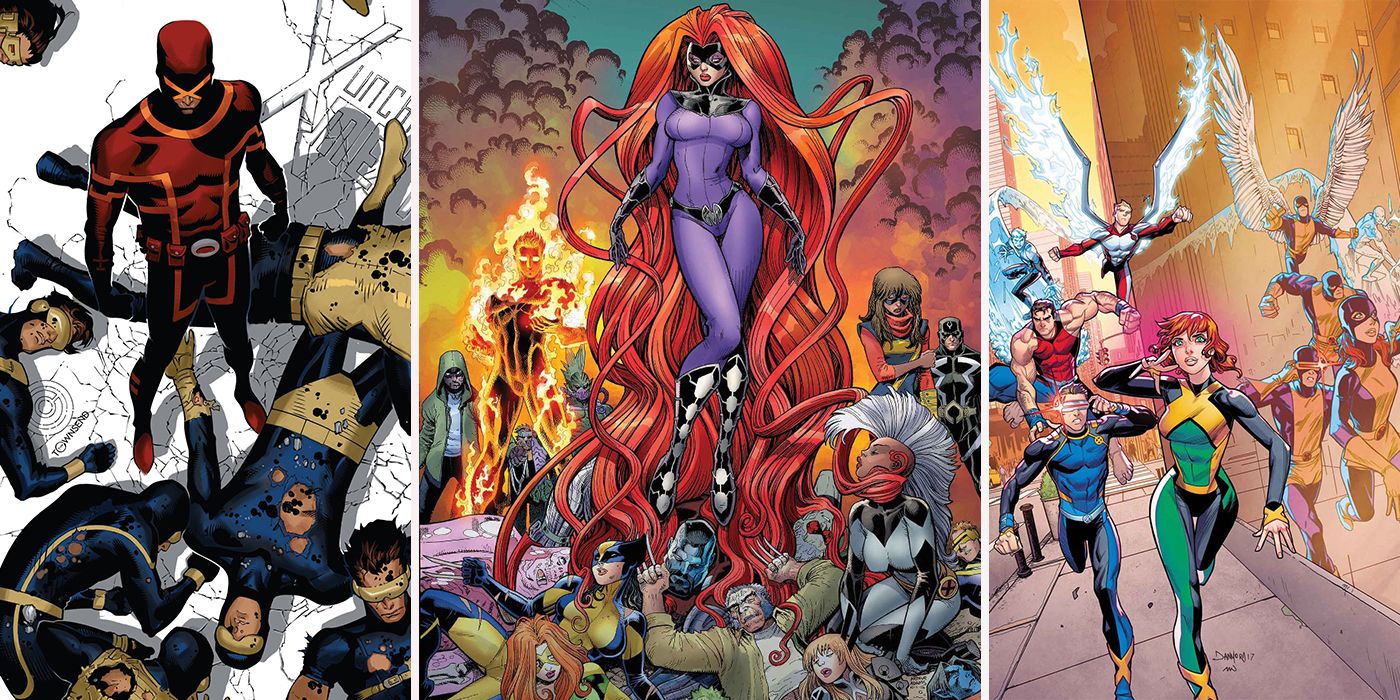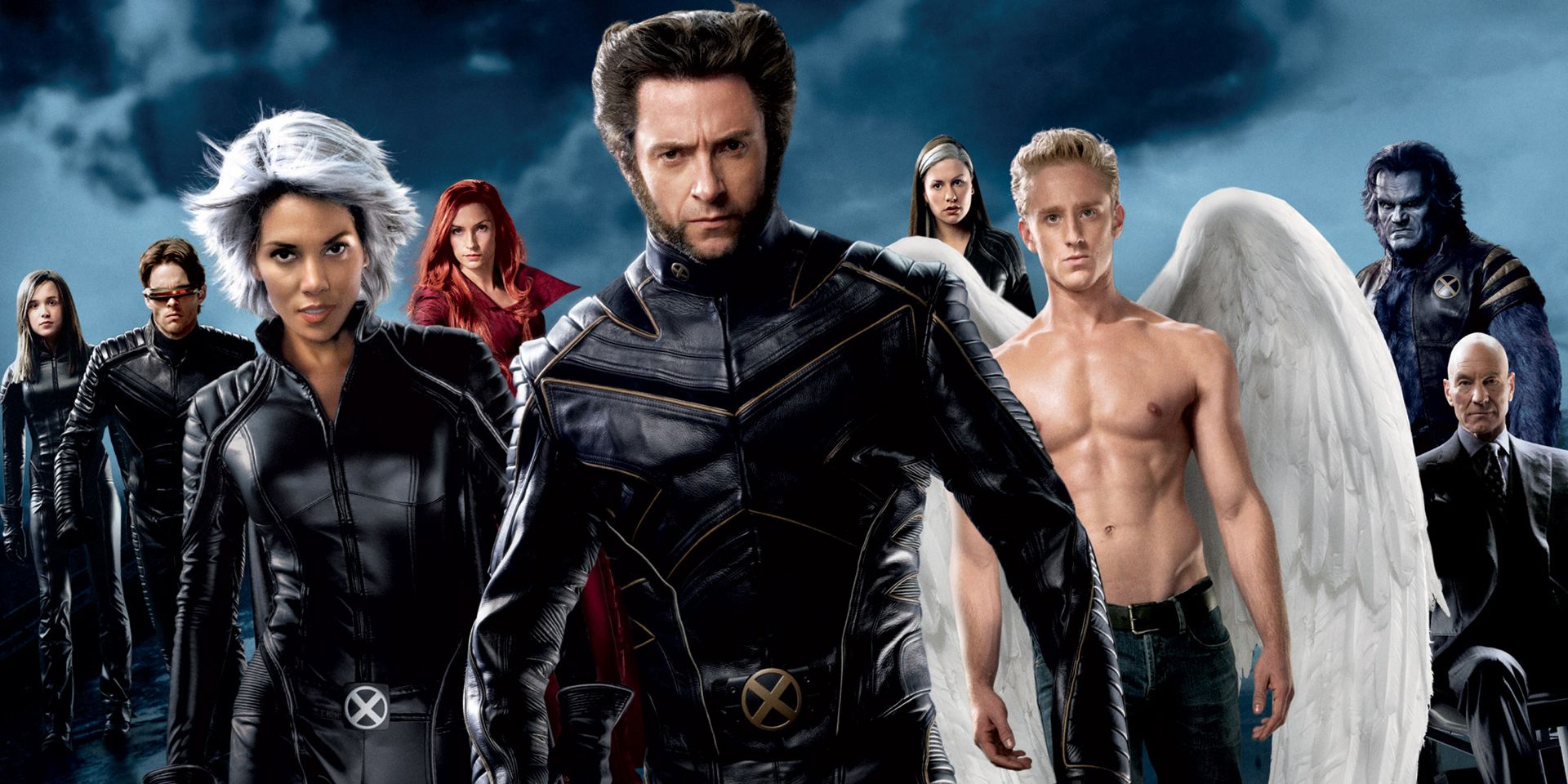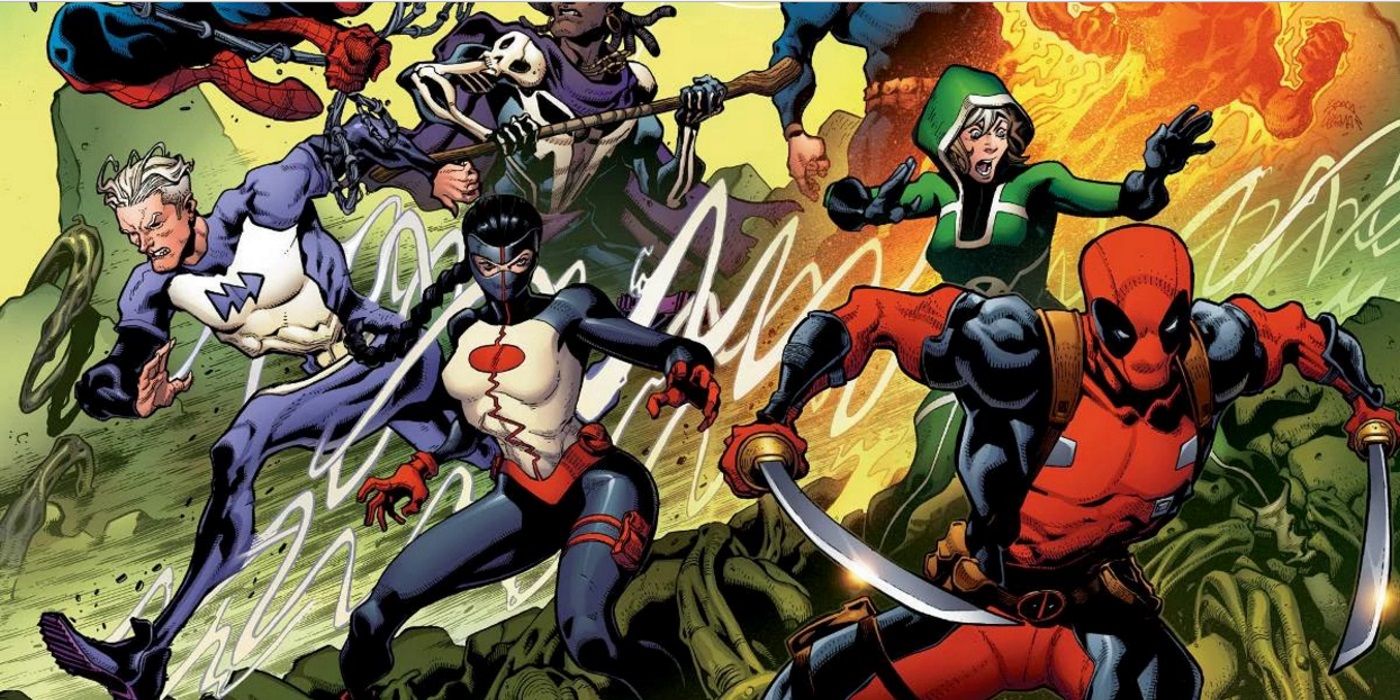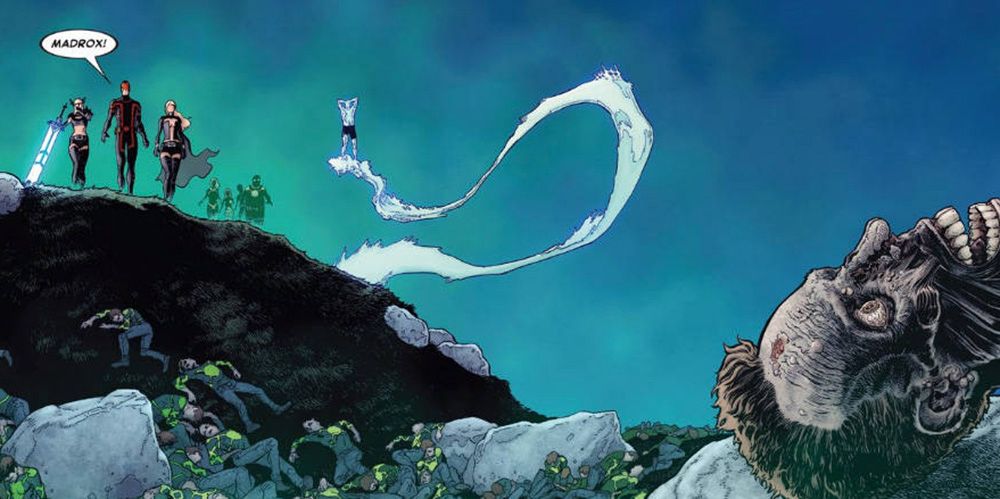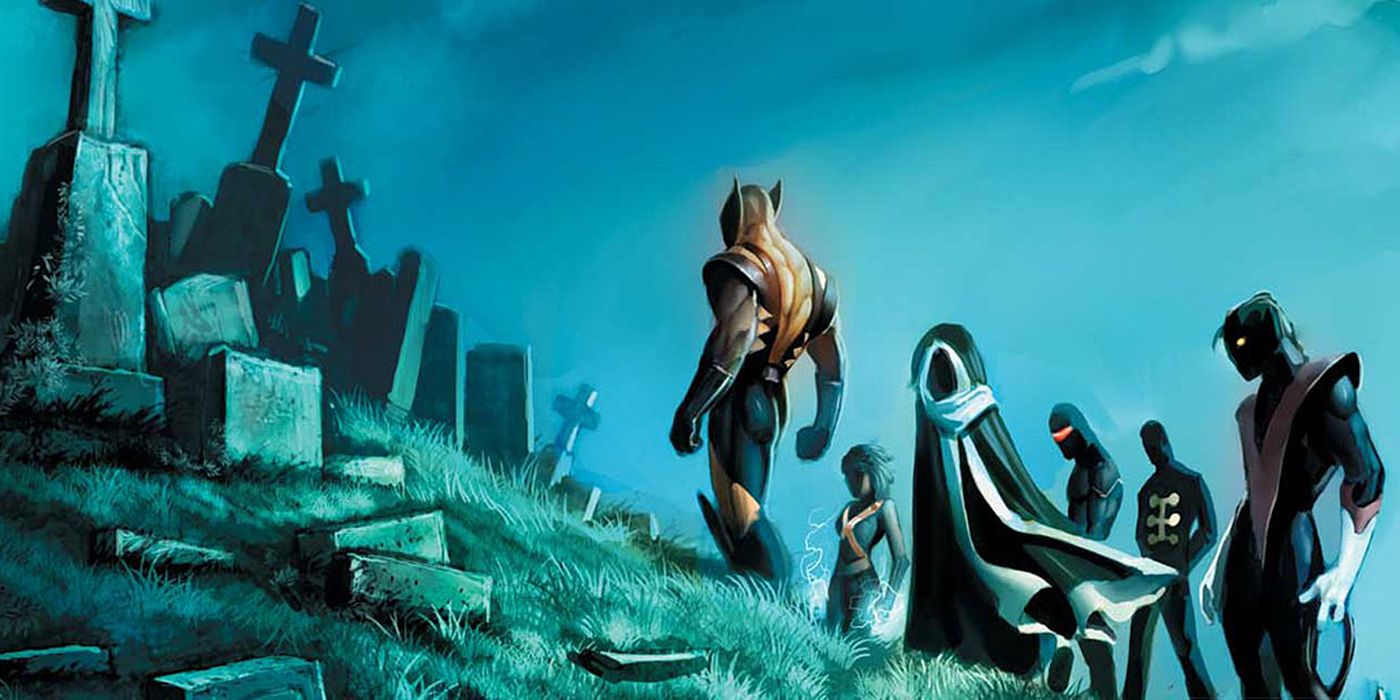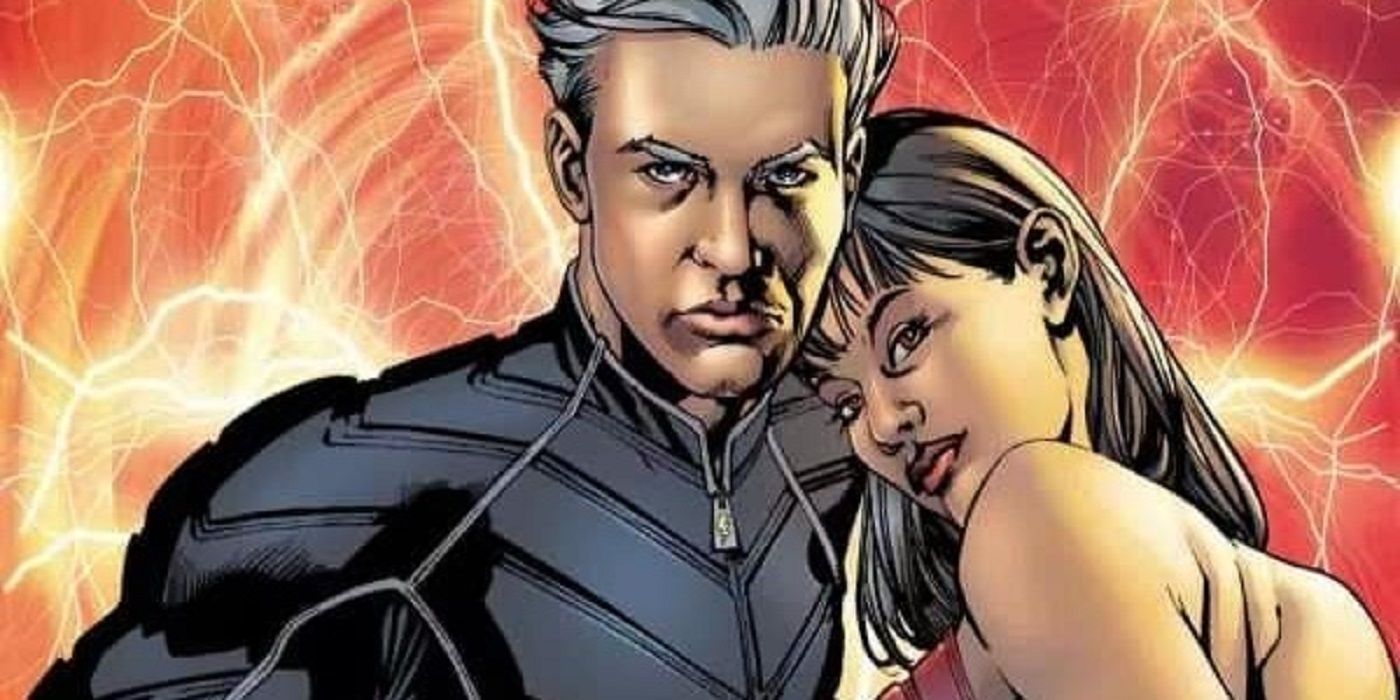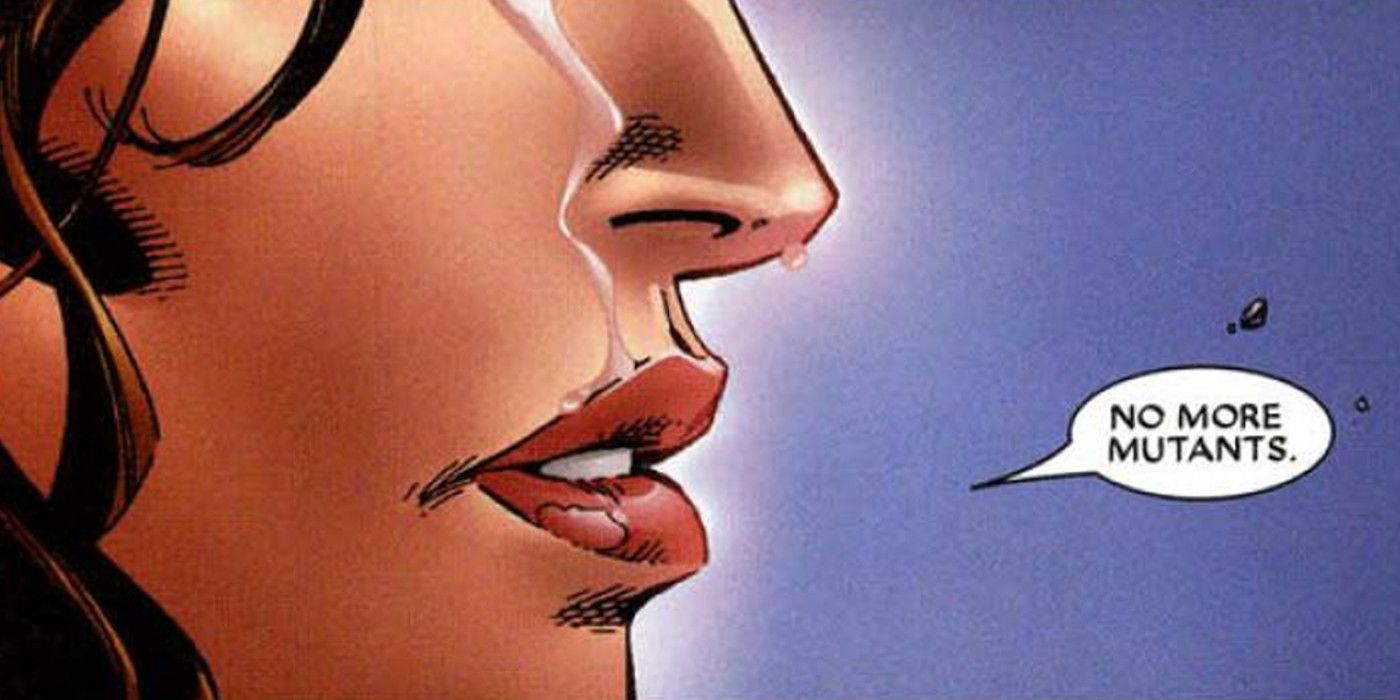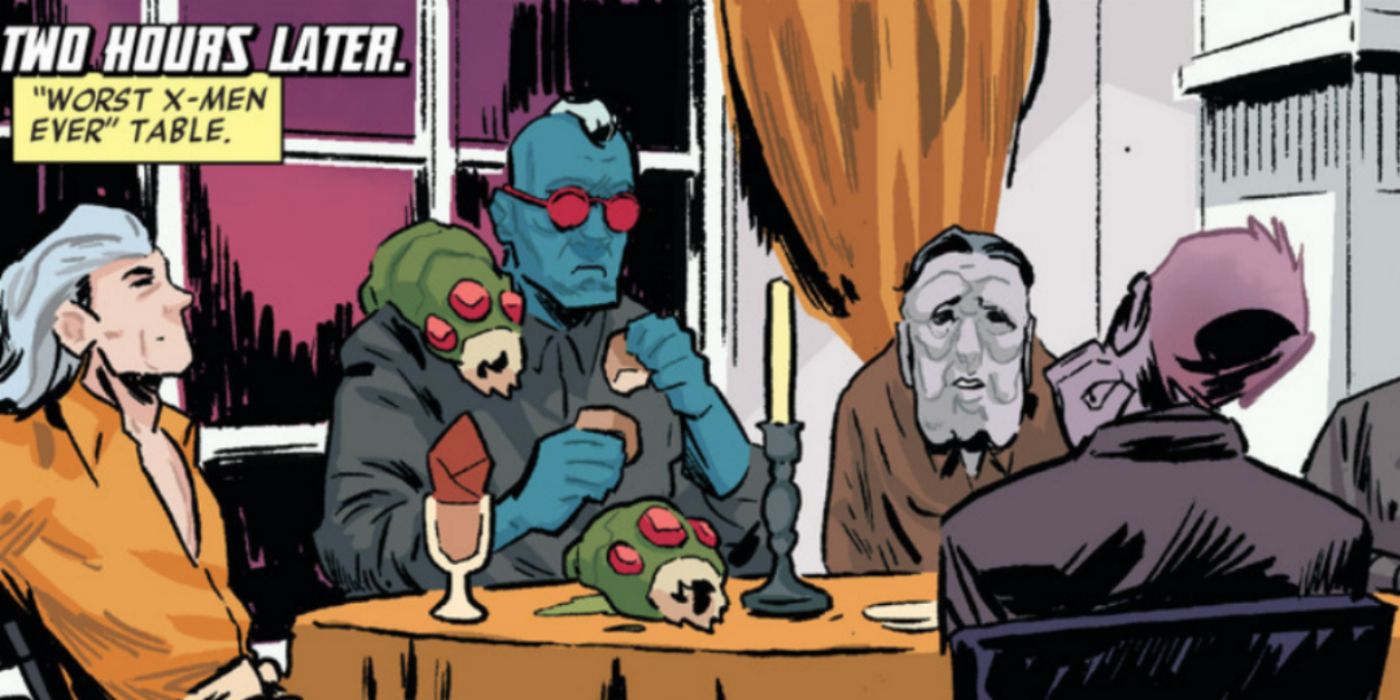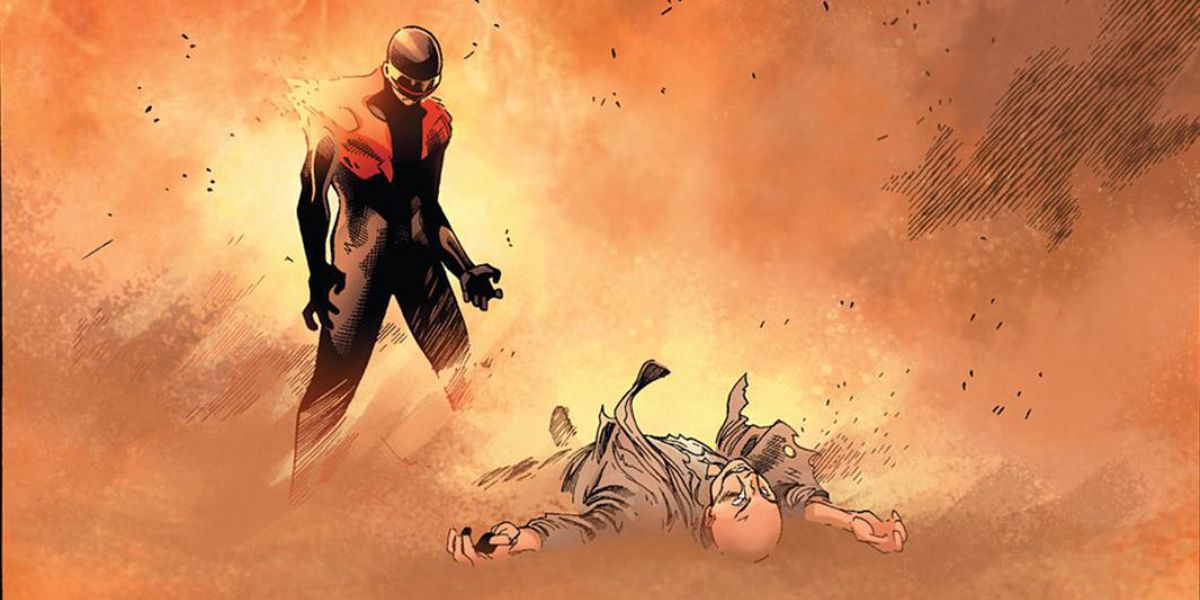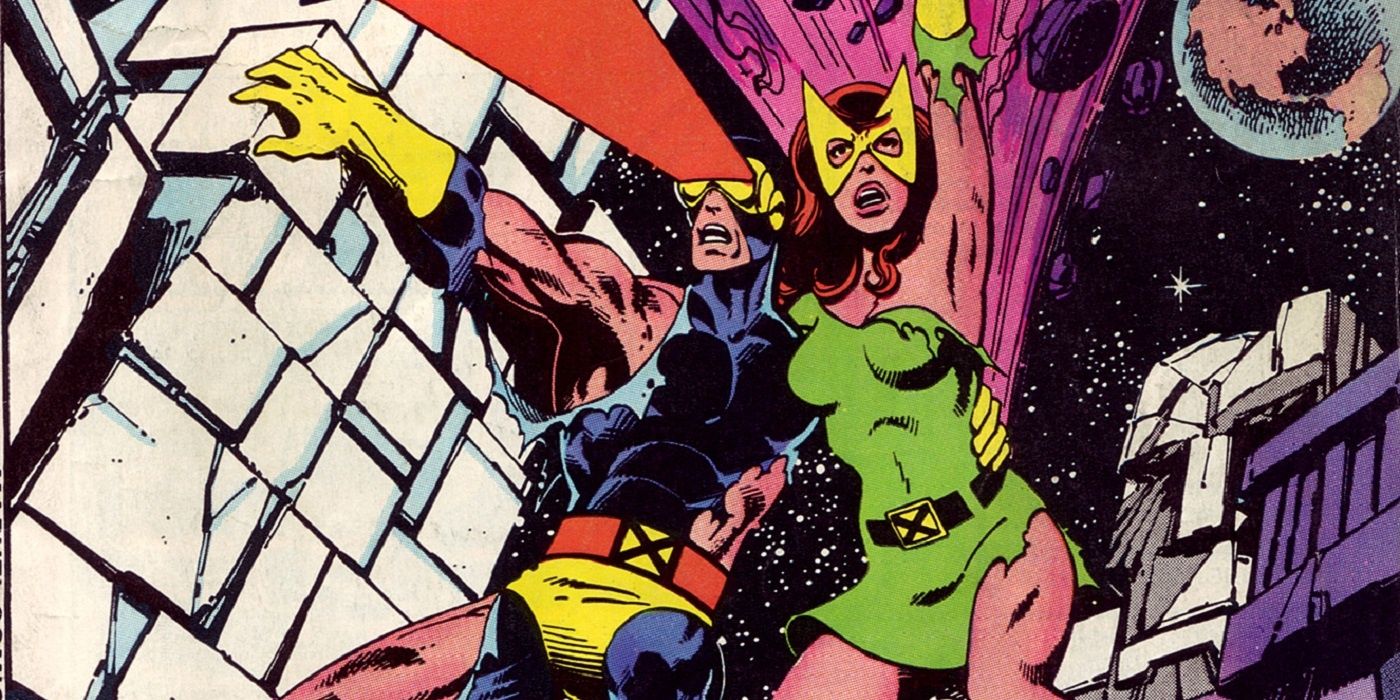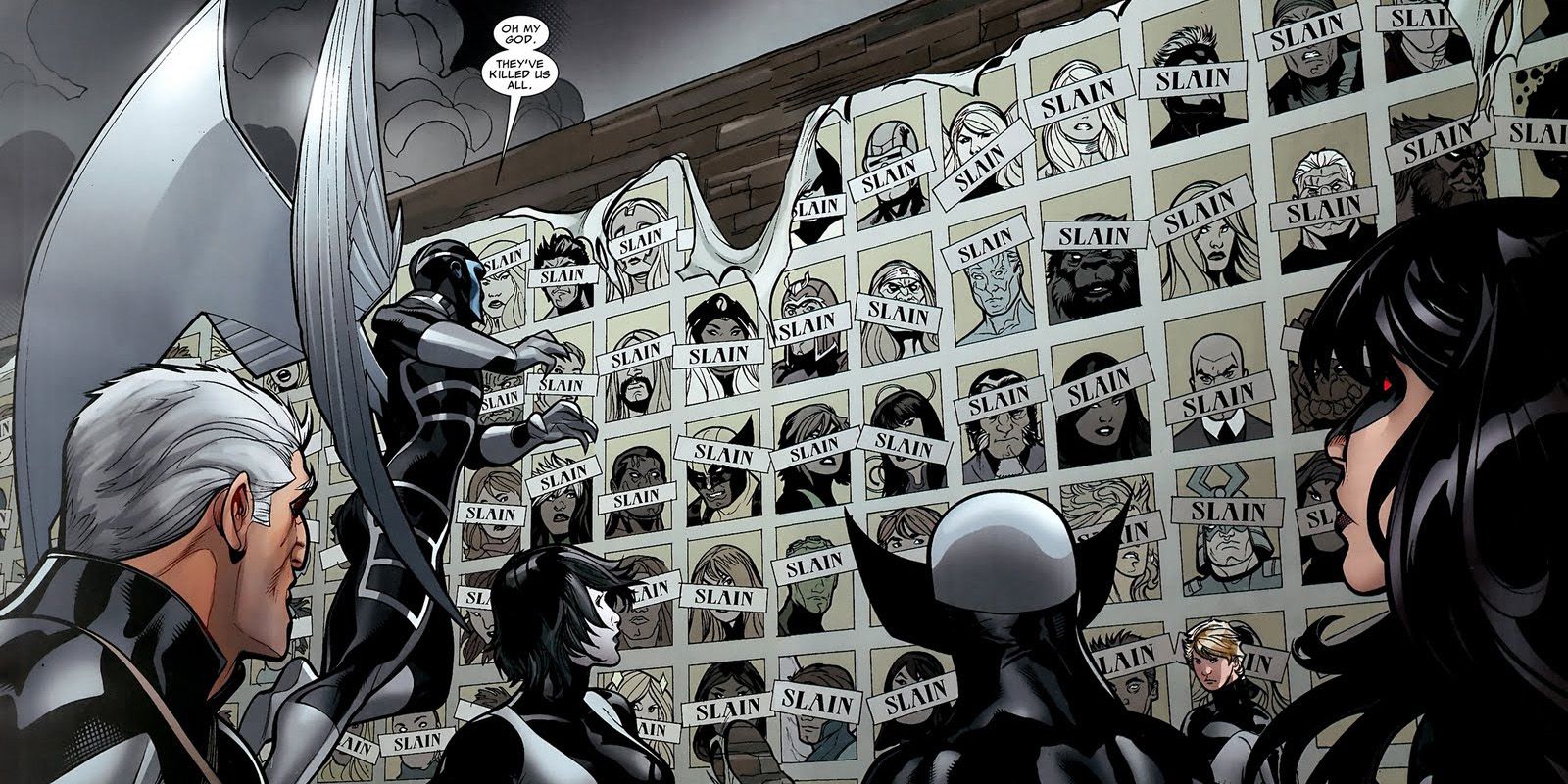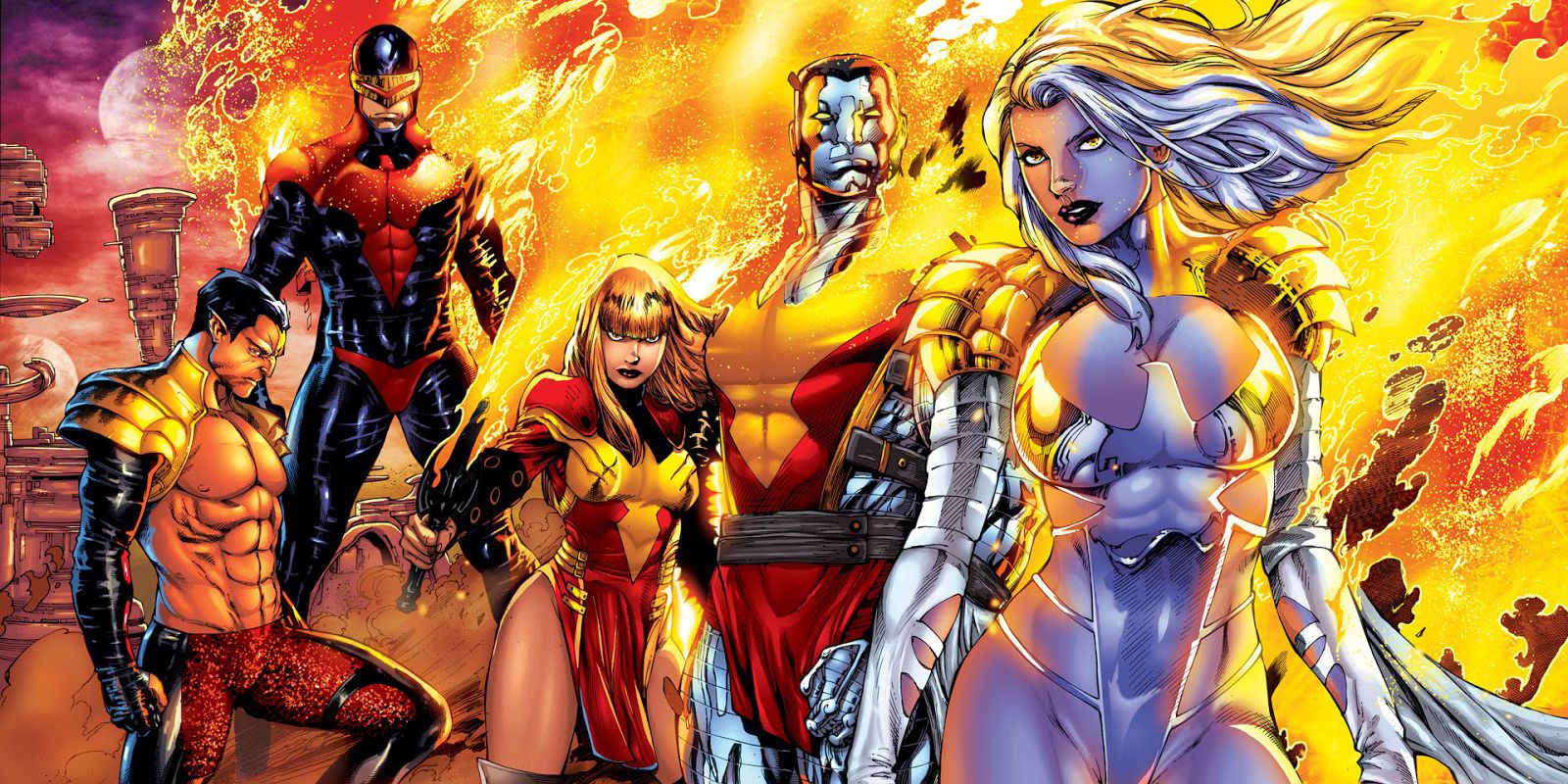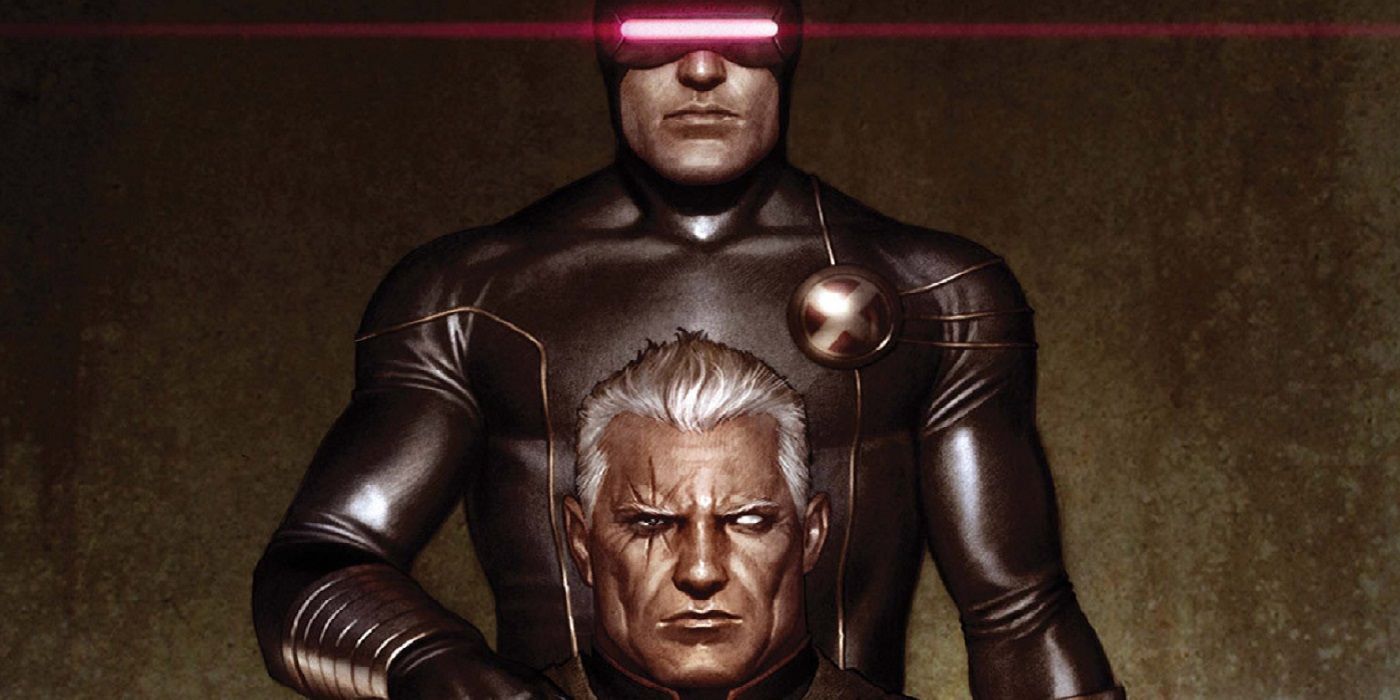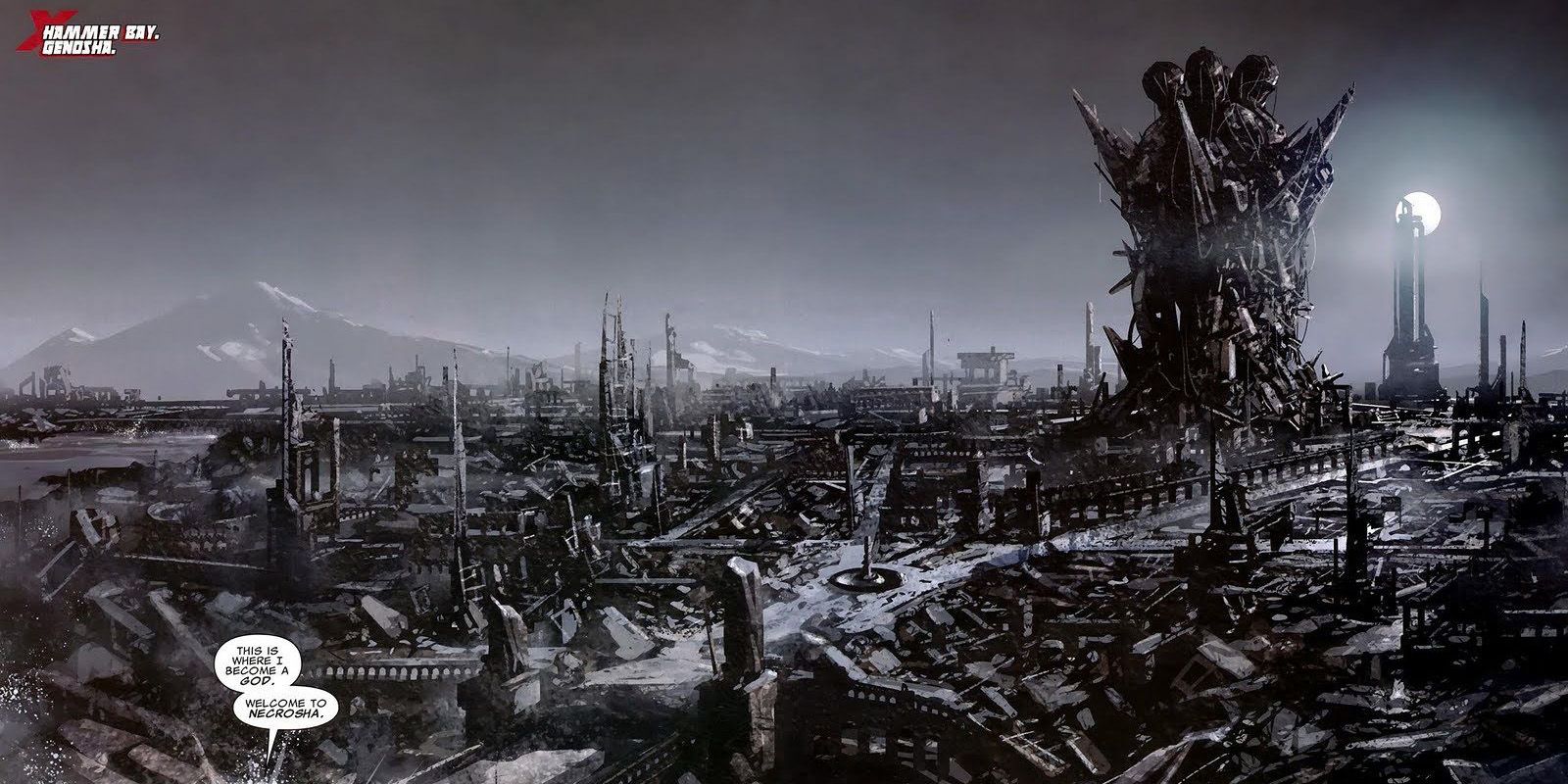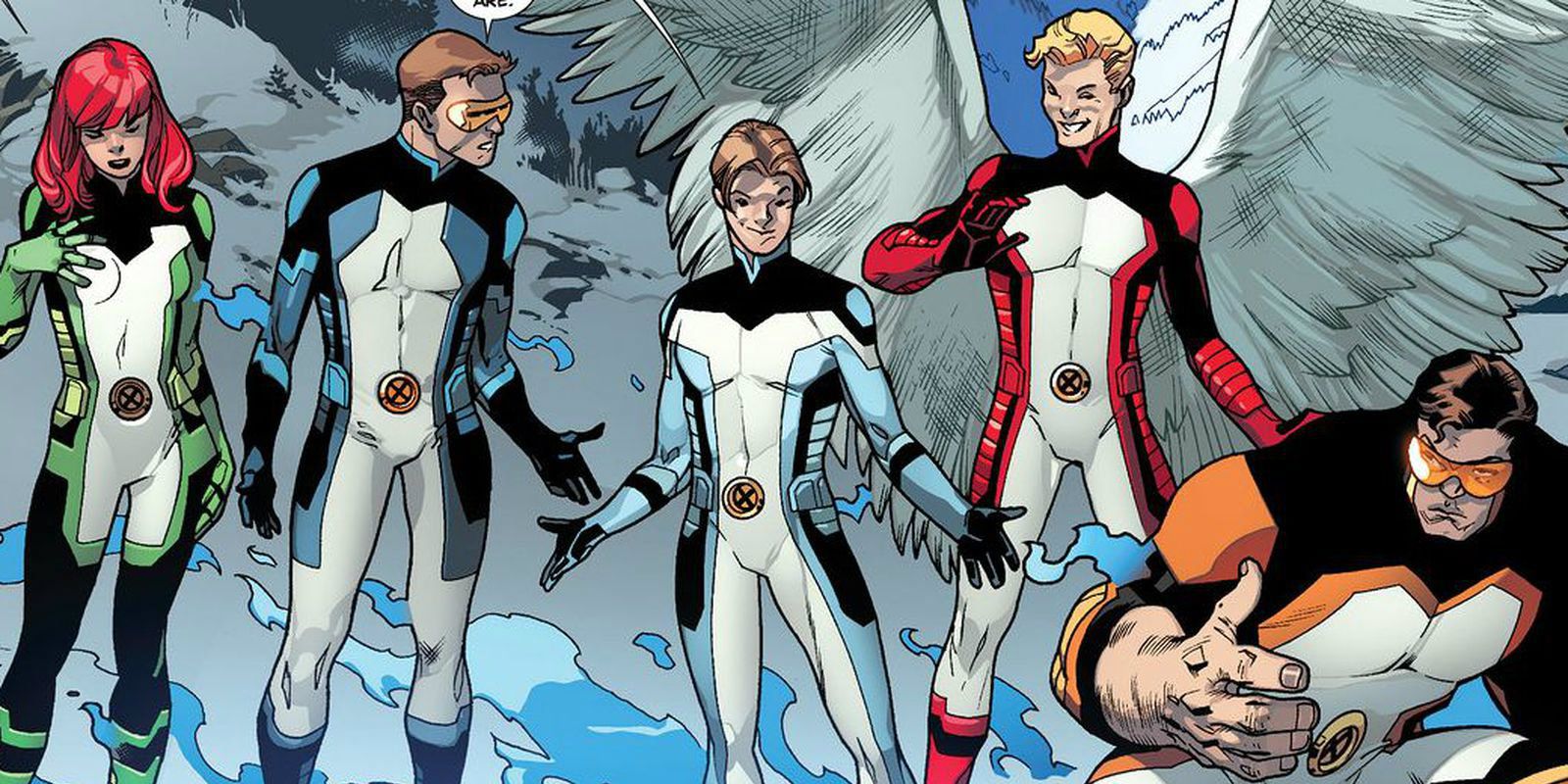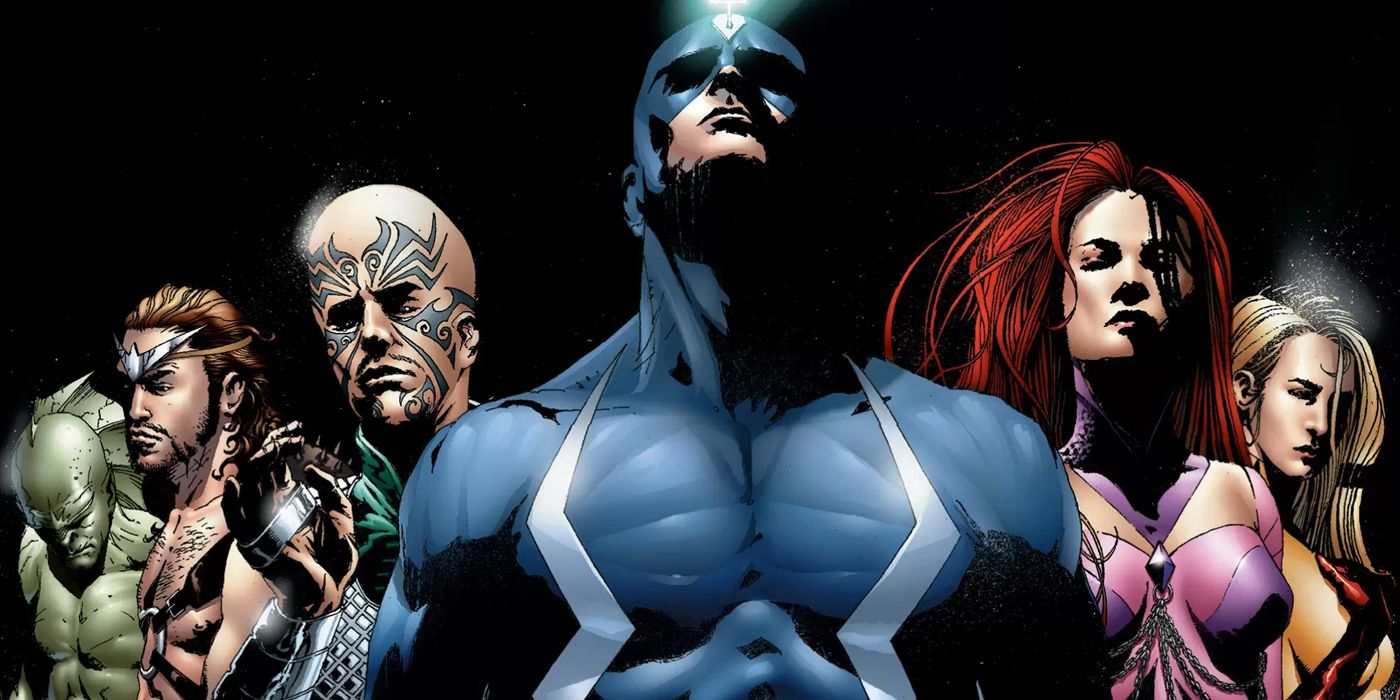Since 1963, the X-Men have inhabited their own private corner of the Marvel Universe. Their powers don't come from dramatic or narrative-driven events, but rather from very natural genetic mutations that just happen to gift them with extraordinary abilities. Despite being demigods of evolution, they're labeled social pariahs and considered outcasts from society. To overcome their assigned hierarchical status, they become a team of rebellious superheroes led by a pacifist civil rights leader. Even in Marvel, a company that prides itself on telling human stories for human readers, the X-Men stand out as narrative machine, generating examples of the greatest story tropes humanity has ever told itself.
RELATED: Totally eXcentric: The 15 Most Twisted Versions Of The X-Men
In addition to great stories, the X-Men have provided Marvel with some of its most iconic character. IPs like Professor X, Wolverine, Storm, and Cyclops aren't leaving the public's collective memory any time soon. For all the profit and praise the X-Men have brought Marvel over the decades, you'd think that the company would reciprocate the team's productivity with an equal measure of respect and reverence. This is not the case. For years, Marvel has treated the X-Men like their universe's whipping boy, without granting them any measurable social victories. Here are the worst things Marvel's done to the X-Men.
15 SOLD THEIR FILM RIGHTS
Inarguably, the MCU is the biggest franchise in Hollywood right now. Backed by immense talents and generous producers, the movies and television shows that make up the onscreen universe have taken the world by storm. However, the X-Men are not included in this undertaking and probably never will be. That's because in the '90s, at the brink of bankruptcy, Marvel sold the film rights of some of their most iconic characters to various movie studios.
The X-Men were given over to Fox which produced its own franchise that preceded the MCU. While the movies initially struck a chord with a generation desperate to escape the vacuum of the '90s, the cinematic quality was lacking. With exactly three exceptions, Logan, Deadpool and X-Men: First Class, this trend has continued into the modern day, with no indication that Fox will allow the word "mutant" to be said in an MCU movie.
14 SELECTIVE OVEREXPOSURE
In Marvel's defense, the vast overuse of some of the X-Men on the pop culture stage is not entirely their fault. Part of the blame goes to Fox for forcing Hugh Jackman's Wolverine into virtually all of their X-Men movies, to the point where it became distracting. But Marvel has been guilty of doing the same thing.
The mutants Emma Frost, Wolverine and Deadpool in particular have been so heavily emphasized in the Marvel Universe that they've transcended being protagonists and have practically become part of the environment rather than actual characters. Which is a real shame seeing as there are literally hundreds of X-Men Marvel could refocus on, all with their own stories and identities to hash out. And Marvel does occasionally turn to the spotlight onto these other characters but almost inevitably, they'll swing it back to who the same characters they've been over-hyping since the '80s.
13 MULTIPLE PLAGUES
The X-Men have never numbered more than a few hundred at a time but the global mutant population has been stated to, at times, number in the tens of millions. That's less than the population of most countries. Perhaps to quell their numbers and keep them docile, Marvel has introduced a number of viruses and illnesses that only effect mutants.
There was the Legacy Virus which infected thousands of mutants and killed several hundred, including Colossus's sister Illyana. Colossus was later forced to sacrifice himself to trigger a global cure. The Terrigen Mist imbued Inhumans with their powers but was deadly to mutants. The release of this gas was what jump-started the Inhumans vs. X-Men event. Not to mention the Strain 88 virus and the Kick epidemic which plagued mutants alone.
12 TOO MANY RESURRECTIONS
It's become a running joke in both comic book communities and the mainstream that the only people who have really died in comics are Uncle Ben and the Waynes. The X-Men's constant resurrection cycle is a large reason why this stereotype exists. Wolverine, Cyclops, Jean Grey, Magneto, Professor Xavier, Nightcrawler and numerous other mutants have gone the way of the grave only to return later in the most ridiculous and nonsensical way possible.
Case in point: Nightcrawler simply teleported out of heaven. Jean Grey came back as the Phoenix and then came back a second time as the more powerful Dark Phoenix. Professor X transferred his consciousness to a comatose man's body, which was also crippled to maintain the status quo. No X-Men death can be taken seriously since it's become an expectation that they'll return in short order, a trope which has bled out into the larger comic continuity.
11 ULTIMATE QUICKSILVER AND SCARLET WITCH
Pietro and Wanda Maximoff have subtly had some of the most intriguing character arcs in comic books. Born under mysterious circumstances with amazing powers, both have switched back and forth between heroes and villains as their moral codes allow. They share a close bond as twins and have made it clear that no matter what, the Maximoffs will always have each others backs. Marvel's Ultimate Universe decided to take it a step further and turned their familial love into actual, literal, physical familial love.
As in straight-up incest, fully seen and recognized by all of their Avengers teammates. Captain America in particular is completely baffled by the development. At one point, Wolverine, who it is hinted might be their real father, watches from a bush while they elope. From this point on, it became hard not to feel uncomfortable when the two interacted, even outside the Ultimates universe.
10 M-DAY
With a single line at the end of the "House of M" storyline, Marvel effectively pulled the rug right out from under the X-Men. A devastated and insane Scarlet Witch muttered "no more mutants" and suddenly a global population of 30 million was reduced to a few hundred with most being forcibly stripped of their powers. Characters who had struggled to contain their powers or had experienced arcs that saw them embrace their mutations were abruptly made obsolete -- all their struggles suddenly made irrelevant.
On top of that, anti-mutant factions capitalized on the event, claiming it justified their prejudices and using the opportunity to openly attack mutant institutions. The remaining mutants were quarantined to Xavier's school, ironically realizing Magneto's nightmare of mutant subjugation, the direct result of Marvel kicking the X-Men below their metaphorical belt.
9 RIDICULOUS POWERS
One of the biggest problems Marvel has ever introduced to the X-Men is sheer numbers. There are so many mutants, each with their own individual powers and mutations. But there's only so much creativity in the world and there reached a point where the new mutants being introduced had abilities that were best described as random.
Anybody remember Maggott? The kid who's stomach was actually two slugs that would come out of his body whenever he had to eat? Or what about Choir? The girl who had multiple mouths on her neck and had the power of ventriloquism? There was also Cypher who was a living Rosetta Stone, Skin who had extra skin and Adam X who the less said about the better. It's hard to picture Wolverine, Marvel's badass in residence looking cool next to a dude whose power is giving people magic tattoos.
8 WILDLY INCONSISTENT POWERS
Marvel loves to hype up just how powerful the X-Men are, giving them categories of strength to gauge their abilities. Unfortunately, they either routinely forget how powerful their own characters are or they actively enjoy nerfing them.
Professor X tells everyone that he's the most powerful telepath in the world, but Cyclops was able to resist his mental attacks without any psychic defenses. Wolverine's bones are supposed to be unbreakable but that didn't stop Hulk from ripping his body in two. Archangel went toe-to-toe with some of the X-Men's most dangerous enemies like Stryfe and Apocalypse. Then he lost a fight to Bullseye that happened off-page. Suspending disbelief for comic books is hard enough as it is, but when the world presented doesn't adhere to its own logic, it's impossible for readers to become invested.
7 MUTANTS! IN! SPACE!
The core essence of the X-Men's existence is that of a team of social justice warriors bent on using non-violent methods to preserve their lives and their culture, drawing on parallels in the civil and gay rights movements. For some reason, Marvel decided it would be a good idea to bring this ideology into a space opera that it had nothing to do with.
Brought into conflict with the Shi'ar Empire by the exiled Lilandra, the X-Men teamed up with the Starjammer space pirates to overthrow the tyrannical D'Ken. To further entrench the X-Men in the cosmic scene, the leader of the Starjammers was revealed to be Cyclops's father, Professor X became Lilandra's consort and moved with her into space permanently, and Jean Grey's Phoenix Force powers drew from cosmic energy. These stories were outrageously out of place for the socially conscious group of rebels, but Marvel insisted.
6 THEY HAVE NO FUTURE
The ultimate dream of the X-Men is a world where humans and mutants live together in harmony, existing simultaneously in peace. An admirable goal, but Marvel has never once allowed them to realize their dream. In the numerous alternate futures the X-Men have been presented with over the years, none of them have been even close to their dream.
In the "Days of Future Past" story, a series of assassinations sparks anti-mutant outrage and incites a manhunt against them. "The Age of Apocalypse" sees the titular overlord mutant initiate the wholesale slaughter of humans. The whole role of characters like Bishop, Shard and Cable was to return to the past to warn the X-Men about the catastrophic futures they needed to prevent. Even in current continuity, with mutants occupying their own nation of New Tian, Marvel has never given the X-Men hope that their dream could become a reality.
5 THE PHOENIX FIVE
"The Dark Phoenix Saga" is perhaps the best X-Men story ever told, depicting Jean Grey succumbing to the temptations of her absolute power. Unfortunately, the most Marvel seems to have taken out of the story was the firebird avatar that enabled the entire situation, foregoing character development to play with an esoteric cosmic force. Nowhere is this more evident than in the Phoenix Five.
In the "Avengers vs. X-Men" storyline, Iron Man splits the Phoenix Force into five parts and it inhabits Cyclops, Emma Frost, Magik, Colossus and Namor. Their power corrupts them and soon enough the remaining X-Men join the Avengers against their tyranny. In the end, Cyclops became the sole wielder of the Phoenix Force and killed Professor X. The image of Xavier's protege holding his freshly dead body would have been iconic if it hadn't come about just because Marvel loves revising "The Dark Phoenix Saga".
4 CONVOLUTED FAMILY TREES
When superpowers are genetic, family ties are incredibly important to figure out how abilities are going to transfer. The most important families to the X-Men are the Summer and Grey families, stemming from and leading to the iconic couple of Cyclops and Jean Grey. But since families are so crucial to the X-Men, Marvel seems to enjoy making them as complicated as possible, especially by throwing the mutant geneticist Mr. Sinister into the mix.
For starters, Cyclops has two siblings, Havok and Vulcan. Jean has four biological siblings and a clone sister, Madelyn Pryor. Cable is the son of Cyclops and Madelyn and has a clone brother, Stryfe, as well as an adopted daughter, Hope Summers. He has a cloned half-brother/cousin, X-Man, who is the son of Cyclops and Jean Grey. And this isn't including their extended families which get even weirder and more complex.
3 THE DESTRUCTION OF GENOSHA
Genosha was a symbol of the X-Men's success. A colonial nation built on the backs of mutant slaves that had become a mutant-led nation with a stable government and thriving economy. Even if it was led by Magneto, it was essentially the realized dream of the X-Men. At its peak, Genosha hosted over half of the global mutant population. Then Cassandra Nova, Xavier's ethereal twin, set wild, giant Sentinels on the unsuspecting country and completely wiped out 16 million mutants, effectively halving the global mutant population and setting the X-Men's dreams on fire.
Though there were attempts to restore the country, a wayward fight between the Inhumans and the Sentinel Squad made the nation virtually uninhabitable. The X-Men's vision of a utopia Genosha was completely crushed and all subsequent attempts at sovereignty would be compared to the island nation's rise and fall.
2 TOO MUCH TIME TRAVEL
Comics are built on a foundation of continuity. A story has to make sense for readers to be invested. Time travel, while an inventive plot device which can lead to some epic storytelling, is innately at odds with linear continuity. For example, Marvel has thrown the X-Men through so many time travel shenanigans that it's become impossible to follow every different timeline.
Some of them are from alternate timelines that don't exist anymore, a handful of them have crossed over from the Ultimates universe, and five of them are the teenage versions of the original X-Men who came from the past to confront their corrupted future versions of themselves. How are readers supposed to be engaged with a story when the mere existence of half the characters poses mind-bending paradoxical puzzles?
1 REPLACING THEM WITH THE INHUMANS
The Inhumans were first introduced in Fantastic Four #45 in 1968, five years after the X-Men debuted. Like their mutant predecessors, Inhumans are a race of super-powered human variants with unique abilities who rejected humanity, though are different due to their cosmic origins and flying city of Attilan . Though they appeared infrequently for the next few decades, Marvel pushed them to prominence in the 2010s' by exposing their existence to the larger Marvel Universe and creating a new generation of Inhumans with the Terrigen Mist.
Many believe the sudden importance of the Inhumans coincided with plans to use them in the MCU. If Marvel can't have the X-Men, they can at least include their more technologically advanced, hyper-isolated cousins. Symbolically, the Terrigen Mist is deadly to mutants, showing just who Marvel was prioritizing. Need further proof? Look out for the Inhumans TV series coming to IMAX screens in September.
Did we miss another tragedy that Marvel put the X-Men through? Let us know in the comments!

